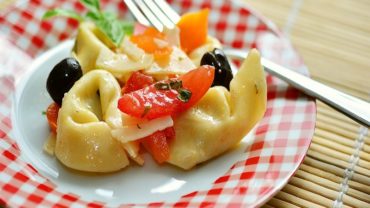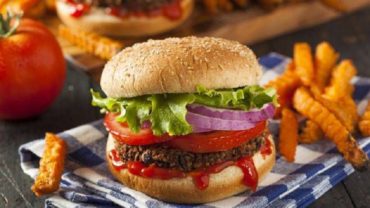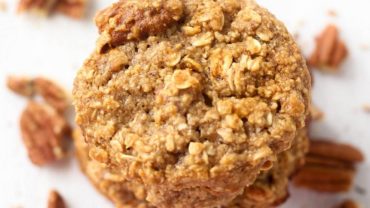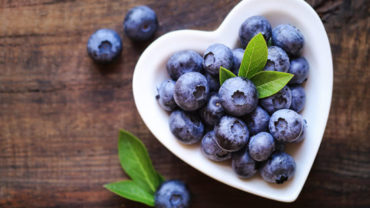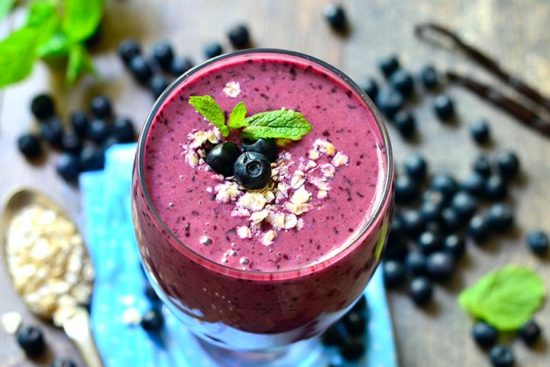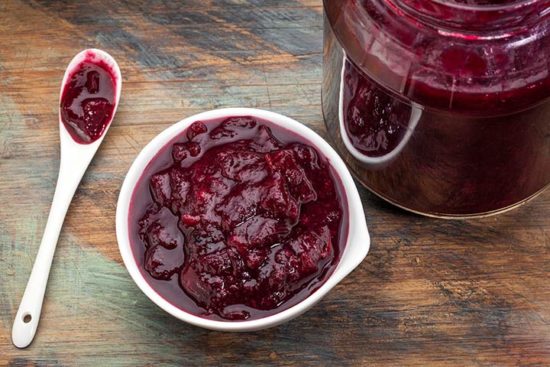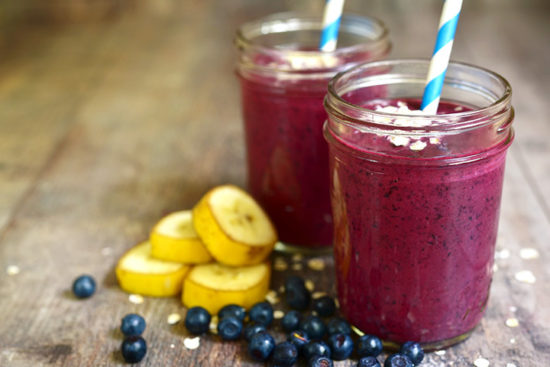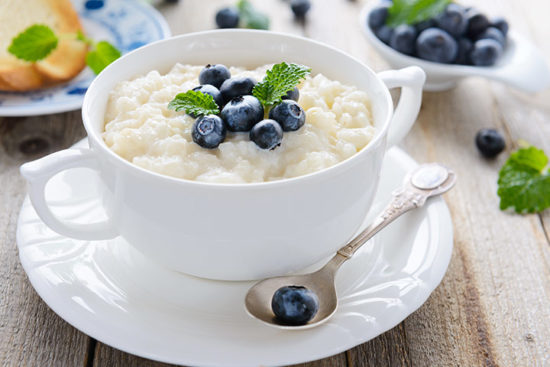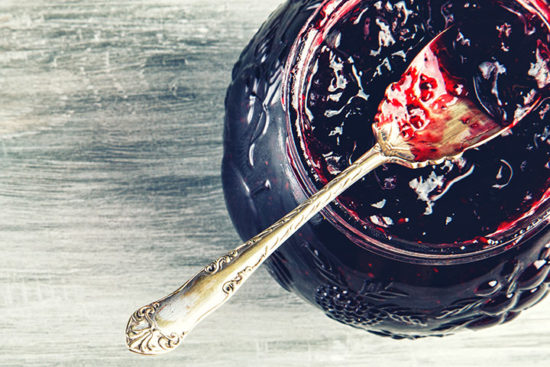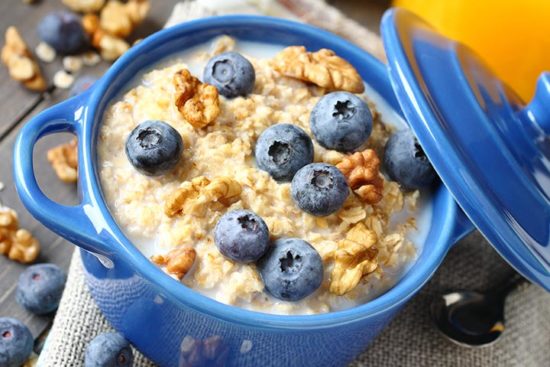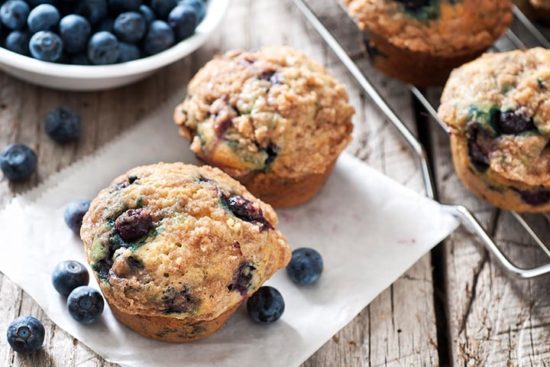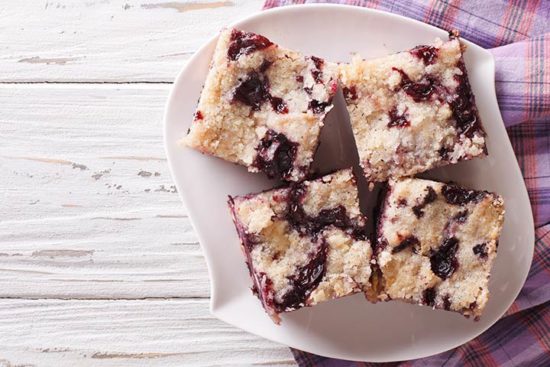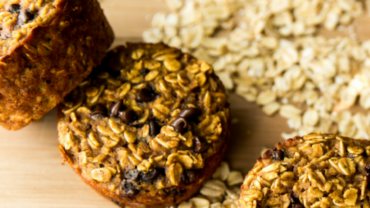via hungryhobby: Healthy Oatmeal Pecan Cookies are a deliciously sweet way to start your day or a great anytime snack! Gluten, Dairy, and Egg Free
I know I know I’ve been teasing you guys with these cookies for way too long! I’m sorry, but they are finally here for you to devour as soon as you can whip them up! As you guys know, I made these to comply with Mr. Hungry’s MRT/LEAP test, and he was very grateful for them!
Because if you have to comply with a food sensitivity test at least you can eat cookies! How is that going???? Well, unfortunately, he caught a really bad cold literally at the start of week one. He isn’t the first client I have had that this happened too. Since the point of the test is to isolate the gut and put it in an anti-inflammatory bubble, it get’s tough to stick to the protocol when you get sick. Any medication taken is outside the test protocol because it’s untested, so it is considered an unknown. In other words, because we didn’t test for Sudafed or Mucinex we have no idea how his immune system reacts to those chemicals. However, we do know those medications are harsh on the gut anyways, so it can be assumed they are gut irritants. So what do you do? Well if he had been a client and not my husband I would have asked they wait till they get better to start the protocol. It’s not like he couldn’t still enjoy cookies right?
However, Mr. Hungry was sure it was just a passing cold. Since I woke up sick on the same day as him and was feeling much better 48 hours later, I figured he would be able to pull through pretty quickly. We had no idea he would end up in the emergency room from a violent reaction to a Z-pack prescribed for bronchitis. He is fine now, but at the time they ran a ton of scans to make sure he didn’t have appendicitis because his pain was very concerning. Despite all of this, Mr. Hungry continued to adhere to his results, refraining from introducing new foods for an entire 11 days. I guess he figured he was feeling so sick that he might as well keep going, at least during all this he could limit any additional gut irritation. He also didn’t have much of an appetite, so bland food was better anyway. He is also on a six-week timeline before he goes to Las Vegas, he wanted to make it through all his tested foods before then. What I couldn’t understand is why he got so sick, and I recovered in 48 hours. At first, I did a ton of joking about the “man cold.” I mean, he is young, very active and athletic. He doesn’t have an overly stressful job or lack sleep, so it doesn’t make sense. Then I remembered what I tell my clients, all the time, EIGHTY PERCENT OF YOUR IMMUNITY IS LOCATED IN YOUR GI TRACT. So, if you are getting sick frequently and unable to fend off the common cold it could be because your GI health is compromised. His Vitamin D also came back low, which is a huge nutrient player in the immune system.
via Mom Junction: Nutrition, taste, and easy availability. We look for these three qualities in the foods that we give our children, especially when the baby is just beginning on the solids. Blueberries have them all. They are a great source of vitamins and fiber and are tasty too! Also, they are the most popular berries, next only to strawberries. But are blueberries good for babies? MomJunction tells you about the nutritional values and benefits of eating blueberries, and also share some recipes that are suitable for your infant.
Blueberries – The Superfood:
The blueberries are a significant source of micronutrients such as magnesium, zinc and vitamins A, E, K, and B-complex.
The plant is grown in the soil with an acidic pH, which also reflects in the fruit that contains high amounts of ascorbic acid or vitamin C.
The fruit is also rich in nutrients like calcium, phosphorus, and potassium, making it a complete package thus referred as a ‘Superfood’.
Are Blueberries Good For Babies?
Yes, they are good for babies.
There is a common thumb rule adopted by most moms, which is ‘no berries till 12 months’. That is true for strawberry, raspberry, and blackberry that belong to the rose family. These contain allergens that can cause eczema and upset digestion in babies.
But blueberry belongs to a different cohort in the plant kingdom that is unrelated to strawberries and thus is safe to feed. In fact, natural blueberry flavoring is found in several baby foods, which is indicative of the fact they are suitable for infants.
In case your baby is prone to allergies in general then be watchful for any symptoms of blueberry allergy, and consult your pediatrician before introducing the fruit to the diet.
When Can Babies Eat Blueberries?
Babies can eat blueberries from the eighth month. However, if your baby develops a taste for solid food by the sixth month, you may consider introducing blueberries earlier. In that case, you have to be extra careful in checking for any symptoms of potential allergy. For younger babies, feed blueberries as puree and for older ones of nine months and above you can try some finger-foods.
Nutritional Value And Health Benefits Of Blueberry For Babies:
Key Nutrients In Blueberry (1):
- Nutrient Nutrient value per 100gm of Blueberry
- Carbohydrate 14.49 gm
- Fiber 2.4 gm
- Protein 0.74 gm
- Natural Sugars 9.96 gm
- Minerals
- Potassium 77 mg
- Phosphorus 12 mg
- Calcium 6 mg
- Magnesium 6 mg
- Vitamins
- Vitamin E 0.57 mg
- Vitamin C 9.7 mg
- Vitamin B3 0.418 mg
- Vitamin K 19.3 µg
A mere 50gm of blueberry can have 3mg of calcium and 3mg of magnesium, which is great for the development of your baby’s bones. Here are some more health benefits of blueberry:
1. Keeps blood pressure under control:
A bowl of 100gm of blueberries contains as much as 77mg of potassium, a micronutrient essential for maintaining ideal blood pressure even in babies.
2. Regulates blood circulation:
Experiments have shown that blueberry can help prevent the buildup of plaque in the arteries by reduction of cholesterol (2). Babies have a developing circulatory system and thus the inclusion of blueberry in their diet can aid in healthy blood vessel development.
3. Supports bone growth:
Vitamin K in the fruit helps in the synthesis of osteocalcin, a bone protein, which helps in keeping bones strong and healthy. The presence of vitamin K along with calcium and magnesium makes blueberry a great fruit for bones.
4. Good for a healthy heart:
Blueberries are rich in polyphenols and fiber that are clinically proven to boost cardiovascular health (3). It thus provides healthy heart or cardioprotective nutrients for your baby.
5. Cognitive development:
Thanks to the mix of the various beneficial nutrients and antioxidants, blueberries help in keeping the nervous system healthy. They slow the weakening of mental capacity and help in general cognitive well-being (4).
6. Antioxidants control free radicals:
According to the USDA Human Nutrition Center (HNRCA), blueberries have the richest antioxidant concentration in the world of fruits and vegetables. These antioxidants help control free radicals that can cause aging-related issues.
7. Helps fight cancer:
Antioxidants also prevent the buildup of malignant cells, which in turn may lead to cancer.
8. Relief from eye fatigue:
A study in Japan has found that the fruit eases eye fatigue. Also, the anthocyanin in the blue pigment of the fruit improves eyesight.
After the knowing the nutritional values and health benefits of blueberries, you wouldn’t want to waste any time in feeding them to your baby.
However, do not introduce more than one new food at a time as it will be difficult to deal with allergies, if any.
Blueberry Allergy In Babies:
Unlike other berries, blueberries are not allergens but may elicit an allergic reaction in the baby if introduced earlier than the sixth month.
Blueberry allergy can result in swollen eyelids and lips. The baby may also have itchy, swollen rashes and in some cases an upset stomach.
You may consider holding back the fruit if your baby:
- Just suffered a bout of eczema
- Has a history of chronic allergic reactions to new food
- Has a sensitive digestive system
- Has been clinically diagnosed with food allergy
You should not see any adverse reaction if you introduce blueberry with finger foods after the tenth month.
Also, parents often fear that blueberries would lead to constipation.
How To Choose And Store Blueberries For Babies?
Select: Blueberries are susceptible to pesticide contamination that can be harmful to your baby’s health. So, purchase the fruit from a trustworthy source, preferably the one that stocks organic produce. Choose the berries that have a deeper blue colour and are firm but not hard to touch. Do not buy the fruits that are dull and watery. Also, they should be able to roll freely; if they do not, then they are not fresh.
Store: Store the fruits in a freezer after sealing them in an airtight container. That way you will be able to store them for over two weeks without losing the freshness or flavor of the fruit. If you plan to consume them within a few days, then you can simply put the berries in a bowl, and cover it with a cling film. The indigo-coloured pigment in the fruit’s skin acts as a natural preservative.
Wash the berries thoroughly before processing them.
Blueberry Baby Food Recipes:
With your apprehensions gone, you are all set to introduce Blueberry to the diet of your little one. But how do you do it? Would you mash, coarse or just stew it to a puree? Here are some amazing blueberry baby food recipes, which are delicious and healthy too.
1. Blueberry puree:
You will need:
1 cup of fresh or frozen Blueberries
½ cup water
How to:
- Bring the water to a boil in a cooking pot. Add the blueberries intact and simmer for 15 minutes.
- Once the blueberry reaches a softer consistency, use a meshed or slotted ladle to strain the water and remove the fruits.
- Transfer the berries to a mixer/blender. Add the boiled water as required for a thinner consistency.
- Blend the entire mixture into a homogenous consistency ensuring there are no fat lumps or pieces of fruit skin that may gag your baby.
- Let the mixture cool down and feed it to your baby one spoon at a time.
2. Apple blueberry sauce:
Your baby may not like the tartness in the taste of a blueberry. You may choose to add apples to them.
You will need:
- 1 cup fresh or frozen blueberries
- 2 medium-sized apples
How to:
- Peel, cut and dice the apples.
- In a cooking pot, add the diced apples and blueberries with one cup of water.
- Bring the mixture to a boil and then simmer for 15 minutes until it turns soft.
Mash the mixture till there are no hard lumps. You can also puree it for a thinner consistency.
3. Banana blueberry puree:
Babies naturally love the sweet taste and a banana is a great fruit to tend to their sweet buds. You can combine the goodness of blueberry with the sweet taste of banana to make blueberry banana puree.
You will need:
- 1 cup fresh or frozen blueberries
- 1 medium-sized apples
How to:
- Peel the banana and cut it into small slices before mashing into a coarse paste.
- Boil a cup of water in a cooking pot. Add the blueberries along with the mashed banana and simmer the mixture for 15 minutes.
- Transfer the contents to a mixer/blender. If needed, use freshly boiled water to dilute the consistency.
- Let the mixture cool before you feed it to your little one.
4. Blueberry Peach Rice Mush
You will need:
- 1 small fully ripe peach
- 1/2 cup fresh blueberries
- 1 cup Brown rice
How to:
- Grind the brown rice into a fine powder. You can use over-the-shelf brown rice flour as well. Just make sure it has no added sugar, salt or preservatives.
- In a separate mixer, mix the peach and blueberries together and make a puree.
- Thoroughly mix the brown rice powder and fruit puree together. You can use boiled and cooled water for dilution or use blueberry puree, made separately, for the purpose.
In case your baby is 12 months or older it is safe to leave tiny lumps of rice and puree in the mix. Otherwise you can continue diluting with water until you get the desired consistency.
5. Blueberry Tofu Mash:
Tofu is made from coagulated soya milk, and is an excellent source of protein for weaning babies. It is suited for babies that are 11 months and older. Tofu is a non-allergen per se but you can check for any allergies while introducing small quantities in your baby’s diet.
You will need:
- 1/2 cup Blueberry Puree
- 1/2 packet of Firm Tofu
How to:
- Mix all the ingredients. Add water to soften the mixture if required.
Transfer the ingredients to a mixer/blender and process it till it turns into a puree form. You can leave some solid lumps if your baby is used to eating solid finger foods.
6. Blueberry Puree Oatmeal Mix
It is a simple blueberry baby food that is quick to make and requires minimal processing. Just keep in mind that the oatmeal you purchase is plain and does not have any added flavors, salt, sugar or preservatives.
You will need:
- 1/2 cup blueberry puree
- 1/2 cup of plain unflavoured oatmeal
How to:
Grind the oatmeal to a coarse powder – enough to form tiny lumps.
Mix with the blueberry puree and feed. If you want to make it thin, use boiled and cooled water.
7. Blueberry Muffin:
Blueberry muffins can work great for your little one above 11 months of age.
You will need:
- 1 cup fresh blueberries
- 3/4 cup all-purpose flour
- 1/2 cup apple sauce
- 1tsp baking powder
- 1tsp cinnamon
- just under 1/4 cup vegetable oil
- 1 egg
- 1/4 cup milk
How to:
- Preheat the oven to 400 F (200 C). Grease the muffin cups with vegetable oil to prevent the muffin from sticking to the molds.
- Pour all ingredients, except the blueberries, in a mixing bowl and stir the mixture till it has a homogenous consistency.
- Add the blueberries. Stir the mixture gently to prevent the blueberries from breaking.
- Pour this batter into the muffin mold and bake for 25 minutes.
- You can crumble the muffins into smaller pieces and mix it with apple sauce or blueberry puree for your baby. If your baby is older than
- 14 months, then you can break the muffin into smaller pieces and give it to him as finger food.
8. Blueberry Buckle:
The process of making blueberry buckle baby food is quite similar to the blueberry muffin. The ingredients are identical as well. The only difference is that here you pour the batter into a baking pan than in molds.
You will need:
- 2 cups fresh blueberries
- 3/4 cup white sugar
- 1/4 cup softened unsalted butter
- 1 egg
- 1/2 cup milk
- 2 cups all-purpose flour
- 2 ½ tsp baking powder
- 1 tsp salt
How to:
- Preheat the oven to 375oF (190oC). In the meantime grease the baking pan with some unsalted butter.
- Add butter, sugar and egg to a mixing bowl and stir well. Then pour the rest of the ingredients, except blueberry, and mix well.
- Add the blueberries and mix thoroughly. Pour the batter into the baking pan being careful that there are no air pockets left in between.
- Bake for 28-30 minutes.
You can serve this blueberry baby food by combining it with blueberry puree or apple sauce.
Frequently Asked Question:
Are blueberries constipating for babies?
No. Blueberries are rich in fiber with a 100gm serving containing 2.4gm of dietary fiber. Therefore, you need not have to worry about constipation in infants.
A common reason for the constipation fear is that the blueberry seeds are tiny and consumed along with the flesh of the fruit. But the seed itself has a delicate shell, which is easily digestible. However, when you are making a puree or juice, make sure that you either remove the seeds or grind them completely so that they do not pose a choking hazard to the baby. Your baby’s stool could turn bluish in color. This is natural and should be no reason for alarm.
You are now all set to introduce the wonderful little berry to your baby’s diet. But always keep in mind the preference and interest of your infant and do not force-feed any food. Instead, focus on a slow and subtle introduction of the fruit.
If you are aware of some more amazing info about blueberries and recipes for young ones, then share with us in the comments section.
We have discussed about why kids are becoming picky eaters and the things to take note of when your kids are fussy about their food.
Kids could become picky eaters due to numerous reasons.
Some kids are naturally extra sensitive to a certain smell, taste, or texture which cause them to dislike and even refuse to eat certain food.
Some kids on the other hand pick up the fussy eating habits by modeling their parents or other kids.
If you have troubles feeding picky eaters of yours, these kid-friendly vegan recipes that your kids will love! They are easy to prepare and are great for feeding picky eaters. Your kids may not even realize that they are vegan!
Get inspired by these healthy meals that your kids will actually want to eat! 😍 (via Tasty Vegetarian)FULL RECIPE: https://tasty.co/compilation/5-kid-friendly-vegan-meals
Posted by Proper Tasty on Friday, April 6, 2018
Breakfast is the most important meal of the day. Preparing healthy breakfast for kids will help them kickstart their day energetically.
This baked pumpkin chocolate chips oatmeal cups recipe is yummy, healthy and easy to prepare. It is the perfect healthy breakfast for kids to eat on the go.
Grab the following ingredients and try making this healthy breakfast for kids today!
Baked Pumpkin Chocolate Chip Oatmeal Cups
Healthy Breakfast Recipe For KidsRecipe* in the comment section!
Posted by Yum on Thursday, November 16, 2017


